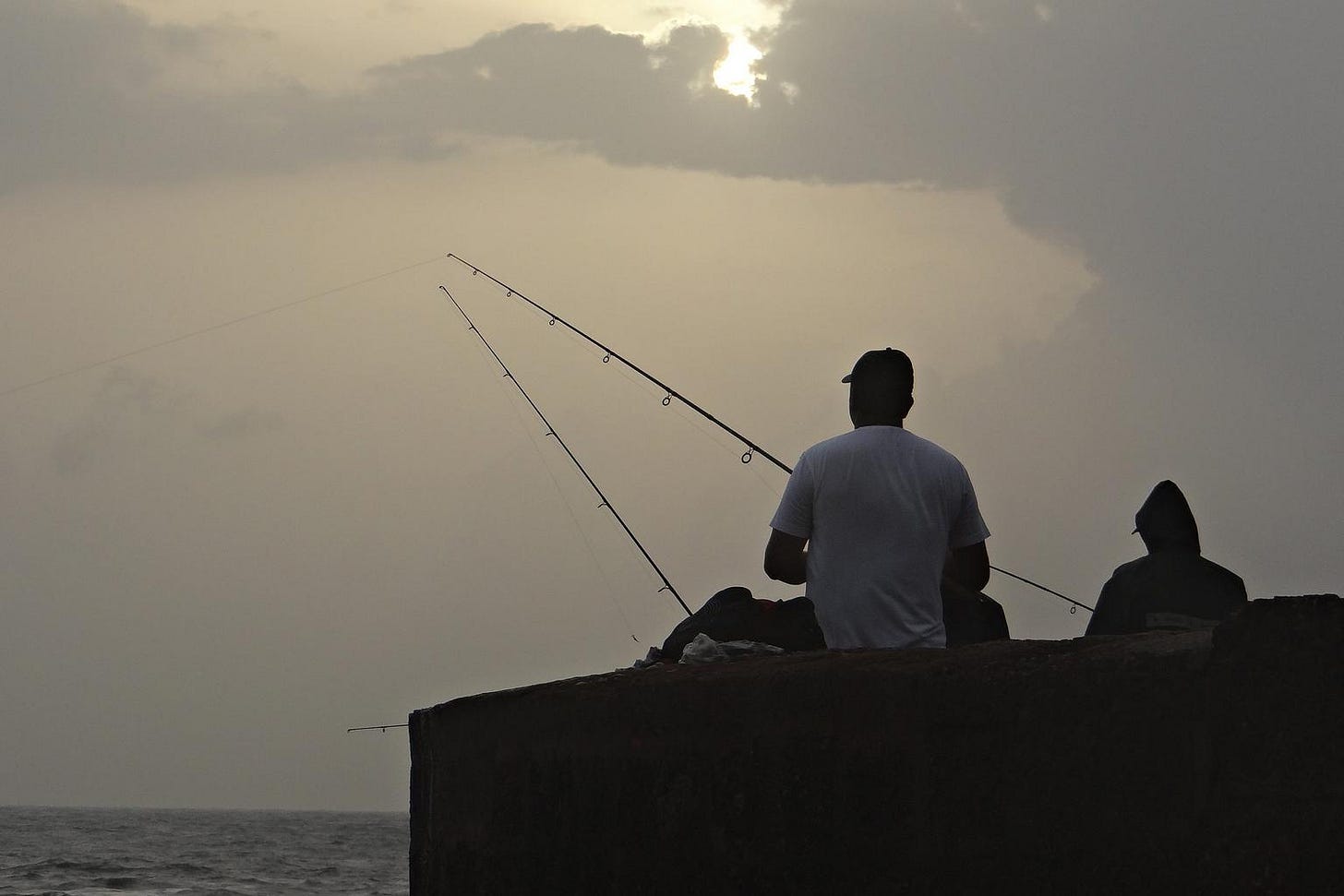Examining the examiners
"Do you even like fish?"
When I was accepted into HTH GSE, something that excited me was the possibility of my becoming a small player in the evolution of education, as cheesy as that may sound. Lately (meaning, since his first presidential term), I have also felt a strong need to support, encourage and defend the young and the under-protected, and the idea of being in a better position to do this pleases me greatly as well. Our pre-kick-off reading and listening assignments have me feeling like this adventure is well underway.
No one needs to hear my story of learning and listening and becoming less racist. Most people my age were taught similar things: Columbus was a great explorer who discovered the Americas, indigenous people were violent and easily duped savages, the people who moved west to map out and invade further were “explorers” and “pioneers”, the North beat the South thereby ending slavery and racial persecution, industry and capitalism built this great country, and all is now well. Of course there were teachers who made the message truer, but the textbooks and curricula needed help, and the best source we had outside of family members who knew better was Mr. Rogers, Sesame Street and some books we might find in the library. My entire life has been a slow crawl into knowing better, and toward being part of the necessary change. A large part of this has been questioning more things, especially the things that have gone unquestioned, working toward becoming a better listener, and a keener judge of source.
All of this blather is to say: when I was trying to come up with a tagline for this site1 that was both pertinent and a slight non-sequitur (as is my wont), I came up with “Do you even like fish?” I’d been overthinking the played out axiom about giving a man fish versus showing him how to handle a rod, and the list of questions generated by my brain-swirl went something like this:
What if the person is, for whatever circumstance of physical configuration, unable to fish?
What if they have a seafood allergy?
What if there are no bodies of water nearby?
What if they are veg(etari)an?
What if catching fish would throw off a currently delicate ecosystem?
What if fish are sacred?
What if they just don’t like fish?
In other words, are giving someone carp and carping at them about getting their own d*mned carp the only two options available? I know that the fishy saying is a simplified version of an idea, but picking at it made me think, which isn’t a bad thing, most times. This kind of re-aiming of the mental and societal lens is key to fomenting change, and we got a fine example of this skill in our first week of class: The producers of the “Seeing White” season of Scene on Radio provided us a beautifully uncomfortable lesson about race and the construct of whiteness by focusing on the palest of us, which was a new - for me - way of viewing it. Take a listen, and head out onto all the paths that branch from it.
There is more than one way to teach any one thing, and more than one answer to any one question2, and I cannot wait to teach and learn.
The tagline isn’t even visible anywhere but on the Welcome page/overlay, thanks to the very minimalism that made me choose SubStack.
My joy in this latter fact was a source of much chagrin to the teachers I pestered mid-exam for clarification about problems posed using what I thought was dubious wording. Lordy, but I was a dork.

